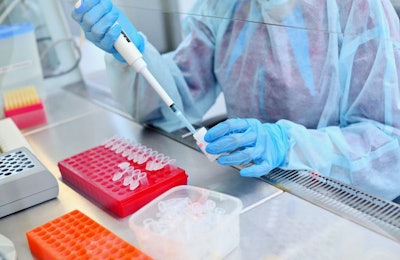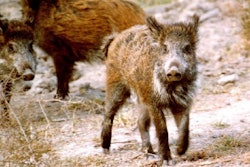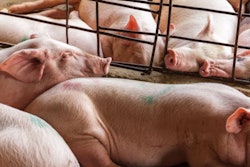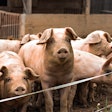
Paper warns that rushing the development of a vaccine for ASF could make matters worse
With African swine fever on the rise, developing a vaccine has become the ultimate scientific Holy Grail. But a group of researchers from The Pirbirght Institute and the National Veterinary Institute worry the pressure could result in a vaccine for ASF that does more harm than good.
“The race to develop an ASF vaccine may overshadow comprehensive efficacy and safety testing, thus potentially investing in the wrong vaccine development strategy and in unnecessary use of animals for experiments,” authors Dolores Gavier-Widen, Karl Stahl and Linda Dixon wrote in this February’s Science.
Scientists have tried to develop a vaccine for ASF before, the article recalls. The most basic method of creating a vaccine using weakened or deactivated viruses hasn’t yielded results for ASF, and the sheer size and complexity of the virus’s genetic code makes it difficult to work with in the lab.
The most promising solutions for ASF, according to the researchers, is the successful development of a live attenuated vaccine, which is where the virus is genetically modified in the lab to remove the components that cause disease and contagion, while still triggering immunity in the receiving animal.
But scientists have been here before. Previous attempts to develop a live attenuated vaccine for ASF have resulted in treatments that actually cased an illness similar to ASF. Some attempts have become contagious, causing the modified virus to spread to uninfected and unvaccinated animals — a particular concern if the vaccine is deployed among wild boar without adequate testing, according to the authors.
Yet with ASF actively spreading in Europe and Asia, Gavier-Widen said she is worried that the latest attempts to develop a vaccine could be pushed to market without adequate testing.
“I am concerned that the uncontrolled spread of ASFV, as occurring in Asia, and its devastating effects can put high pressure on governments and scientists to come up with a vaccine promptly, which is not realistic,” Gavier-Widen, the chair of an international network of scientists studying ASF, said in an email to Feed Strategy. “It is important to make clear that the development of an ASFV vaccine has many challenges and will take time and plenty of work.”
Gavier-Widen said there is insufficient knowledge of which parts of the virus trigger an immune response, and which cause it to become contagious and cause disease. Thus scientists do not yet know “which genes could be deleted to reduce virulence but still allow the virus to replicate so that it can trigger an immune response.”
In the 1960s, an attempted ASFV vaccine based on this kind of technology caused disease in animals that ultimately had to be retrieved, Gavier-Widen said. Although she does not believe a repeat of the incident is likely to occur, she said regulation and protocol related to testing must be followed, and full approval obtained, to ensure the safety of any future vaccine.
View our continuing coverage of the African swine fever outbreak.


















